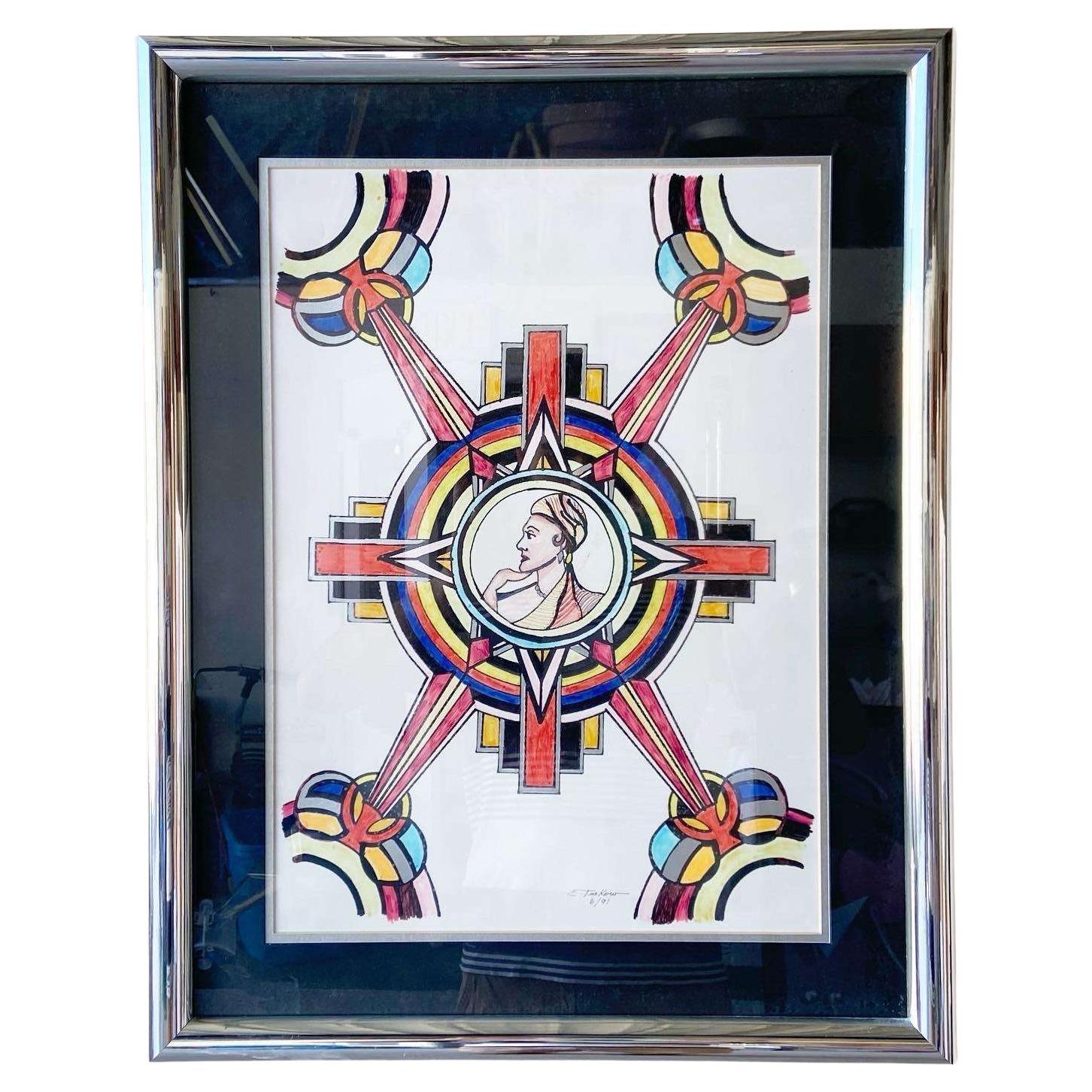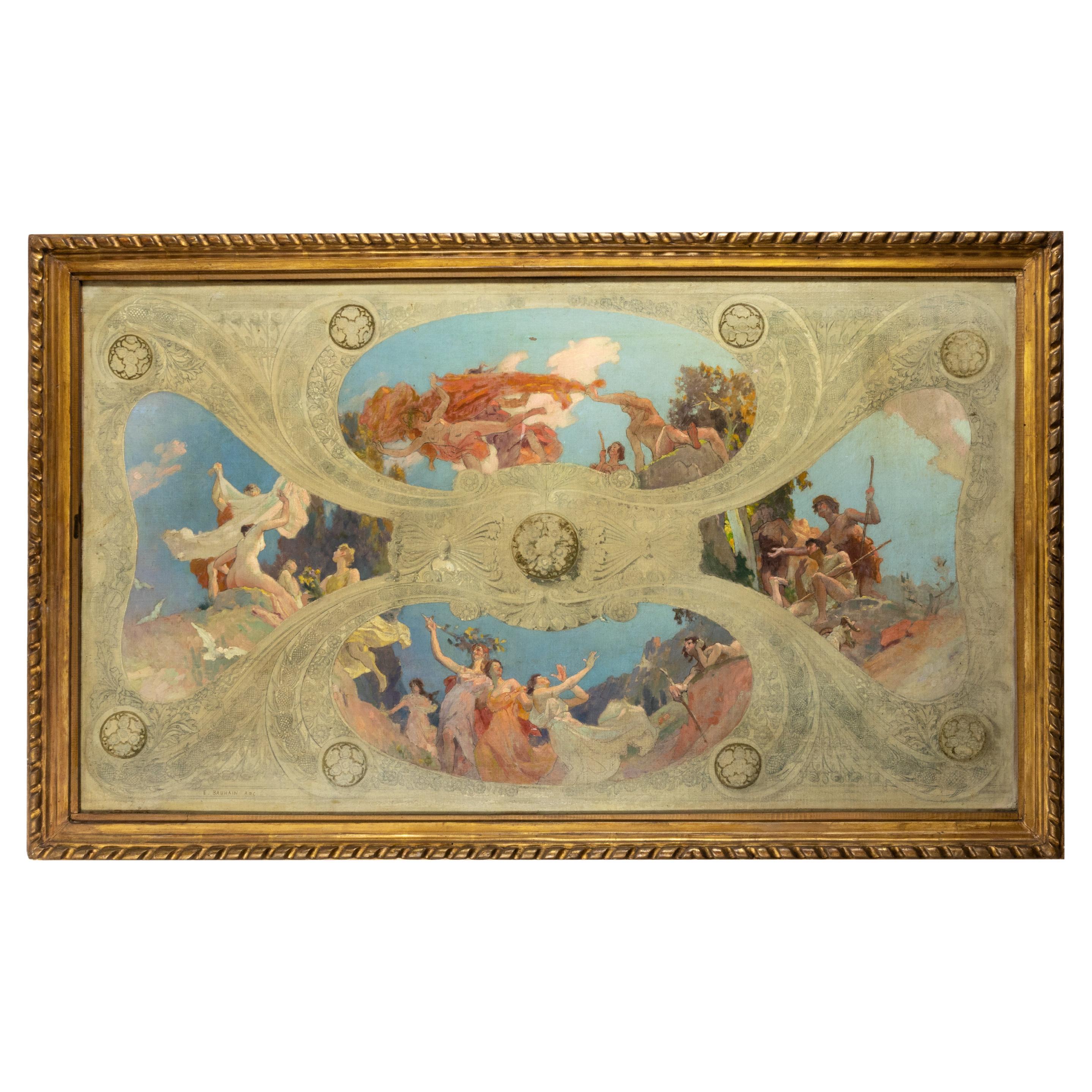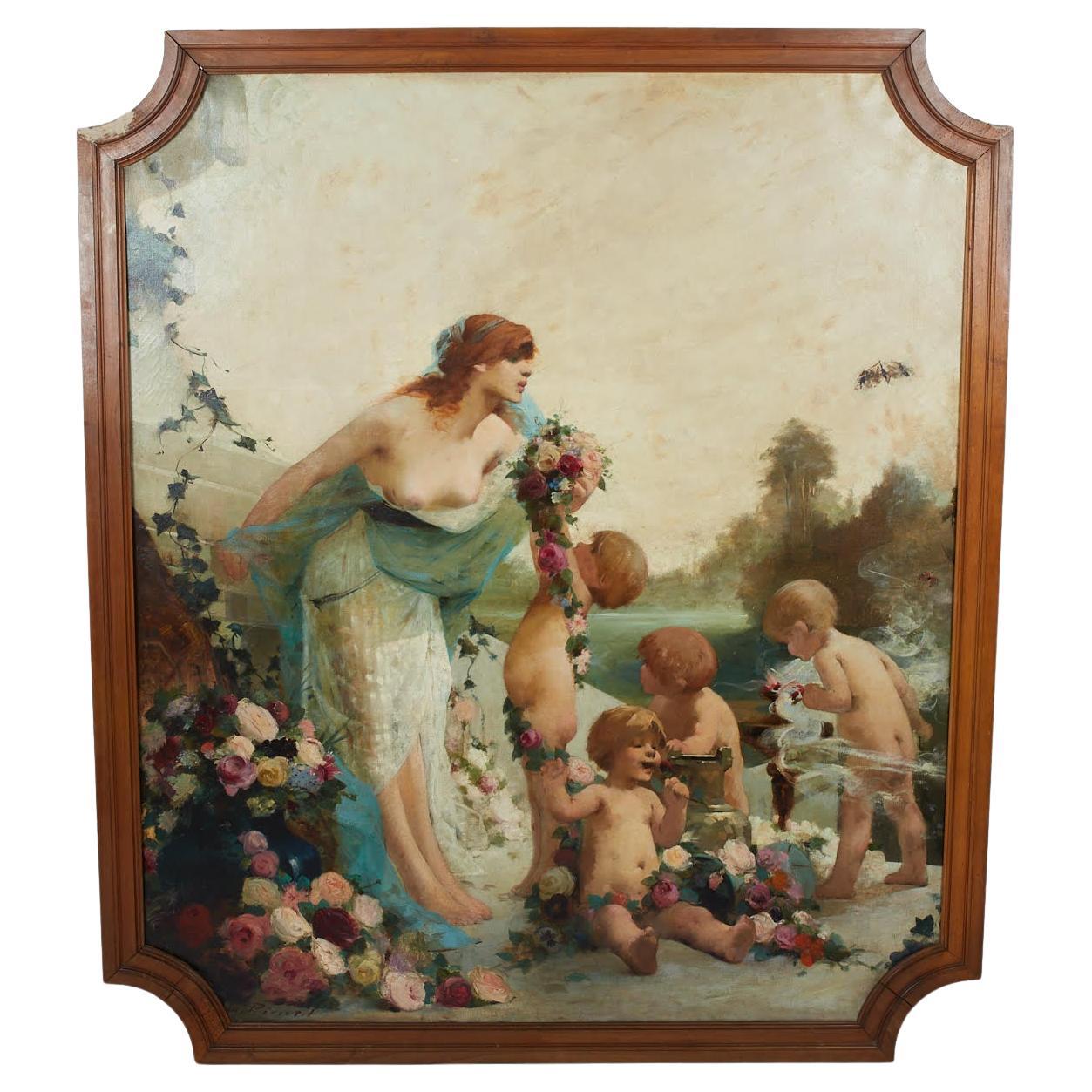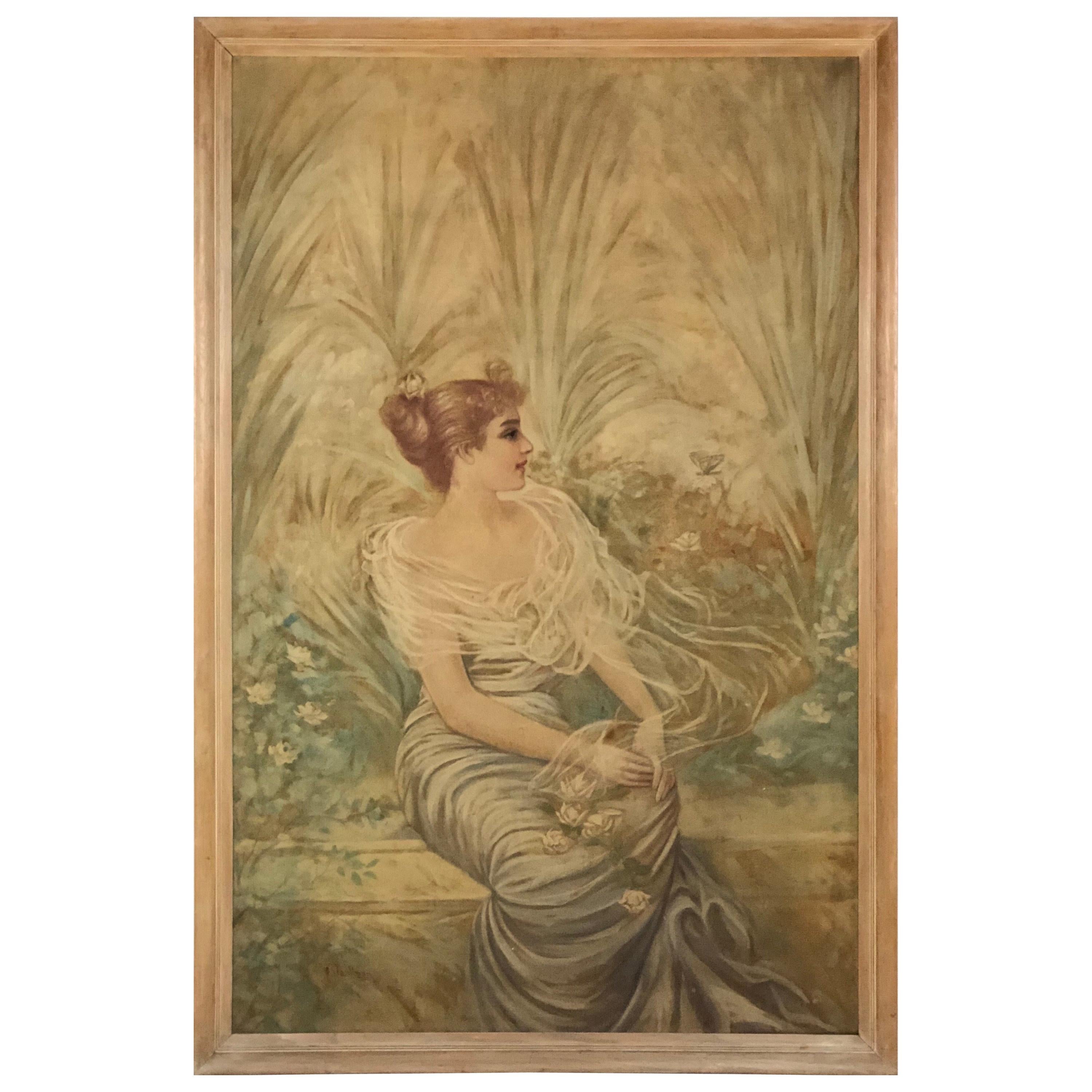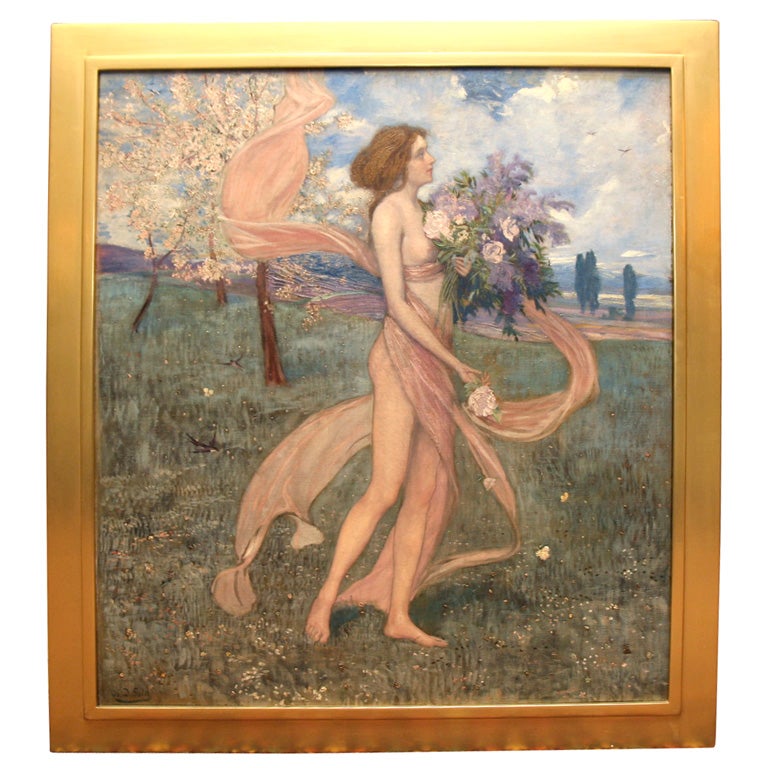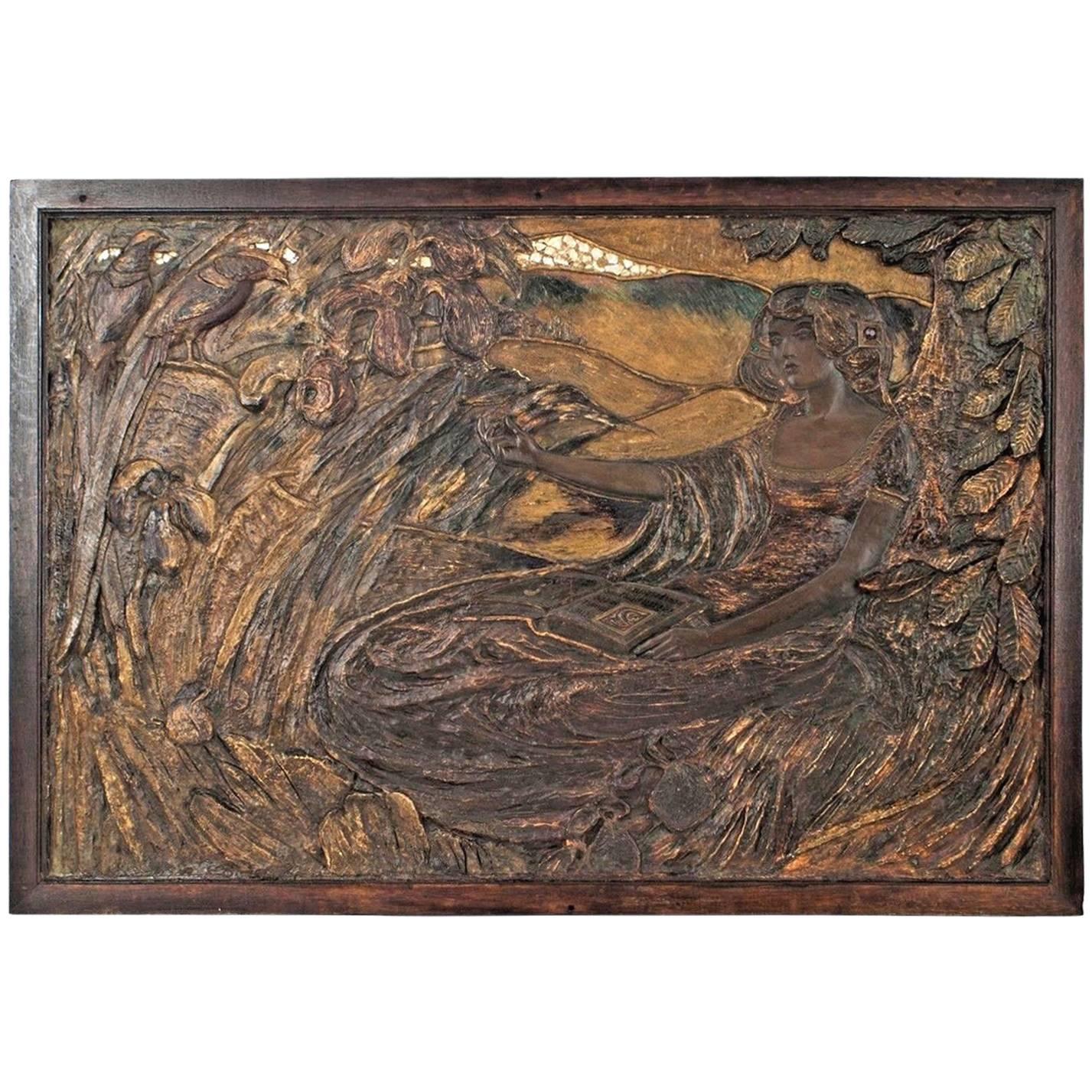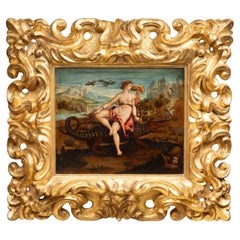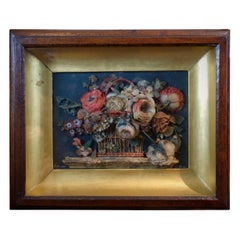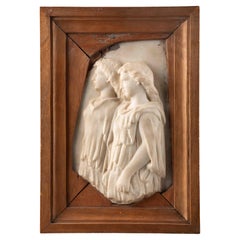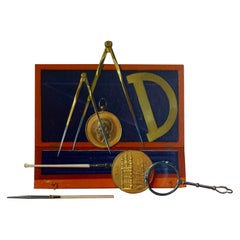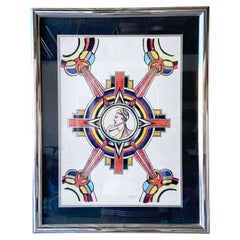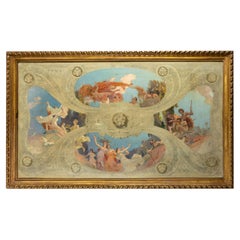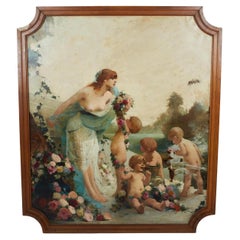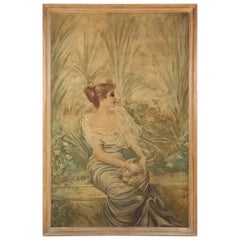Items Similar to Walter Shirlaw, Study for Decorative Panel
Want more images or videos?
Request additional images or videos from the seller
1 of 7
Walter Shirlaw, Study for Decorative Panel
$1,778.39
£1,330.94
€1,500
CA$2,453.45
A$2,728.34
CHF 1,432.98
MX$33,356.65
NOK 17,856.32
SEK 16,833.69
DKK 11,418.74
About the Item
Walter Shirlaw (1838-1909)
Study for decorative panel
Pencil and watercolor on paper mounted on paperboard
Measures: 62.5 x 74 x 5 cm (with frame)
50.5 x 62 (without the frame)
Signed in the circle lower right
Born near Glasgow in Scotland, Walter Shirlaw settled with his family in New York in 1841, when he was two or three years old. As a young boy, he took night classes at the National Academy of Design, and first exhibited his work there in 1861. The first years of his career were spent as an engraver at the American Bank-Note Company, while at the same time attempting to establish himself as a painter.
He later moved to Chicago, where he continued to work as an banknote engraver and also taught art at the Chicago Academy of Design. In 1870, at the relatively late age of thirty-two, Shirlaw travelled to Europe to study. Prevented from settling in Paris by the Franco-Prussian War, he instead studied in Munich, where he joined the small group of American painters working in the city, including Frank Duveneck and William Merrit Chase.
Shirlaw enrolled at the Akademie der Bildenden Künste, where his teachers included Alexander von Wagner, and remained in Germany for seven years. It was while he was studying in Germany that he produced his first significant painting, Tuning the Bell, which received a medal at the Centennial Exposition in Philadelphia in 1876. This was soon followed by his best-known work; the Sheep Shearing in the Bavarian Highlands. Arguably his masterpiece, the painting was exhibited in Munich in 1876, in New York the following year, and in Paris the year after that, and is today in the collection of the Saint Louis Museum of Art.
Together with Chase, a fellow graduate of the Munich Akademie, he helped to popularize the principles of the Munich School, pioneering a more realistic style of painting, characterized by direct modelling, heavy and quickly sketched brushstrokes, and a darker colour palette. In 1877 Shirlaw was one of a group of young artists who, dissatisfied with the conservatism of the National Academy, established the Society of American Artists, of which he served as the first president. A large exhibition of his work was held in a gallery in Boston in 1880. As a draughtsman, Shirlaw worked in pastel, watercolour, chalk and pencil. As a contemporary article on the subject of Shirlaw’s drawings noted, ‘both pencil sketches and charcoal studies illustrate the artistic freedom which usually characterize the work of this accomplished painter.’ Another critic noted in particular of his drawings for illustrations, ‘Shirlaw illustrates like a painter and an artist, and he therefore gets a fulness out of, and gives a richness to a subject, not characteristic of the average illustrator. His drawings have tone, depth, and sense of construction; they show the intelligent observer and the skill of the practised student. The salient point of the subject is well understood, and expressed with effect, often with much picturesqueness and dramatic force.
A very similar drawing to this watercolor study is presented at the Smithsonian American Art Museum (object number 1930.12.47).
- Dimensions:Height: 62.5 in (158.75 cm)Width: 74 in (187.96 cm)Depth: 5 in (12.7 cm)
- Style:Art Nouveau (Of the Period)
- Materials and Techniques:
- Place of Origin:
- Period:
- Date of Manufacture:19th Century
- Condition:Wear consistent with age and use. small spots in the lower part of the drawing.
- Seller Location:Bruxelles, BE
- Reference Number:1stDibs: LU6666231751522
About the Seller
5.0
Vetted Professional Seller
Every seller passes strict standards for authenticity and reliability
1stDibs seller since 2022
15 sales on 1stDibs
Typical response time: 1 hour
- ShippingRetrieving quote...Shipping from: Bruxelles, Belgium
- Return Policy
Authenticity Guarantee
In the unlikely event there’s an issue with an item’s authenticity, contact us within 1 year for a full refund. DetailsMoney-Back Guarantee
If your item is not as described, is damaged in transit, or does not arrive, contact us within 7 days for a full refund. Details24-Hour Cancellation
You have a 24-hour grace period in which to reconsider your purchase, with no questions asked.Vetted Professional Sellers
Our world-class sellers must adhere to strict standards for service and quality, maintaining the integrity of our listings.Price-Match Guarantee
If you find that a seller listed the same item for a lower price elsewhere, we’ll match it.Trusted Global Delivery
Our best-in-class carrier network provides specialized shipping options worldwide, including custom delivery.More From This Seller
View AllAllegory of Africa - 16th century
Located in Bruxelles, BE
Flemish school of the 16th century
Allegory of Africa
After The Allegories of the Continents by Maerten de Vos (engraving by Adriaen Collaert)
Oil on copper
Inscription: "Giulio Ro...
Category
Antique 16th Century Belgian Renaissance Paintings
Materials
Copper
Wax Relief, Italy 19th Century
Located in Bruxelles, BE
Wax relief depicting a vase with flowers
Italy, mid-19th century
Signed "Scot. inv et fecit"
Measures: 37 x 44 x 7,5 cm.
Category
Antique Mid-19th Century Italian Early Victorian Wall-mounted Sculptures
Materials
Wood
$2,845 Sale Price
20% Off
Renaissance relief - Italy, probably Rome, 16th century
Located in Bruxelles, BE
Renaissance relief depicting two female figures dressed in a chiton
Italy, probably Rome, 16th century
Marble, wooden frame (provenance label on the back)
28 x 20 x 5 cm
This beau...
Category
Antique 16th Century Italian Renaissance Wall-mounted Sculptures
Materials
Marble
Pol Mariën (1932) - The attributes of the engraver
Located in Bruxelles, BE
Paul Marien (1932)
The attributes of the engraver
Oil on canvas mounted on panel, signed lower right
30 x 40 cm
In Les Attributs du Graveur, Paul Marien pays homage to the traditio...
Category
20th Century Belgian Modern Paintings
Materials
Canvas
Decorative Carved Panel - France, 19th Century
Located in Bruxelles, BE
Decorative Carved Panel
France, 19th Century
15,5 x L 30,5 x 3 cm
Carved in richly grained wood, this 19th-century decorative panel draws direct inspiration from Renaissance ornamen...
Category
Antique Early 19th Century French Renaissance Wall-mounted Sculptures
Materials
Wood
Tuscan Coat of Arms
Located in Bruxelles, BE
Tuscan Coat of Arm in terra-cotta signed "A. Salvietti 187x"
Signed and Dated "A. Salvetti 187x"
73 x 48 cm
Antonio Salvietti (1854-1931) was an Italian architect and painter.
He w...
Category
Antique 19th Century Italian Beaux Arts Wall-mounted Sculptures
Materials
Terracotta
$6,757
You May Also Like
Art Nouveau Singed and Framed Painting
Located in Delray Beach, FL
Amazing vintage art nouveau signed and framed painting.
Category
1990s Paintings
Materials
Paper
$476 Sale Price
20% Off
Art Nouveau Oil Painting, Church Study, 20th Century, Signed Edouard Bauhain
By Edouard Bauhain
Located in Lisbon, PT
An intriguing 20th-century work, a study for a church fresco ceiling, showcases the artistic genius of Bauhain, a pivotal figure bridging Art Nouveau and Art Deco styles. The piece ...
Category
20th Century French Art Nouveau Paintings
Materials
Canvas
$4,012 Sale Price
31% Off
Oil on Canvas, Painting by Georges Picard, Spring, Art Nouveau Period.
By Georges Picard
Located in Saint-Ouen, FR
Oil on canvas, painting by Georges Picard, spring, early 20th century, Art Nouveau period.
Painting, oil on canvas by Georges Picard representing an interpretation of spring, early ...
Category
Early 20th Century French Art Nouveau Drawings
Materials
Canvas
Art Nouveau Portrait Painting, circa 1900
Located in Atlanta, GA
Late 19th or early 20th century garden portrait of a lady painted in the period of Art Nouveau. Stylized palms serve as an elegant backdrop for a seated heiress painted in soft paste...
Category
Antique Early 1900s Art Nouveau Paintings
Materials
Canvas, Wood
Art Nouveau Painting by Alexander Goltz, "Fruhling"
By Alexander Demetrius Goltz
Located in Bridgewater, CT
Oil on canvas by Austrian artist Alexander Demetrius Goltz (1857-1944) depicting a spring allegory subject, from circa 1900. Titled "Fruhling" or "Girl...
Category
Early 20th Century Austrian Art Nouveau Paintings
Materials
Canvas
$12,000 Sale Price
20% Off
French Art Nouveau Polychromed Wall Plaque
Located in Queens, NY
French Art Nouveau dark polychromed plaster horizontal wall plaque with a carved relief of a woman inlaid with mother-of-pearl and glass cabochons in an oak frame (signed: SF)
Category
Antique 19th Century French Art Nouveau Wall-mounted Sculptures
Materials
Mother-of-Pearl, Glass, Plaster, Oak
More Ways To Browse
Bavarian Painted Furniture
Sheep Mount
Wall Mounted Bells
Antique Sheep Bells
Antique Sheep Shearer
Old Banknotes
Wooden Carved Wall Plaques
Antique Framed Etching
Antique Pedestal Mirrors
Antique Restaurant Signs
Art Deco Clock Set
Art Deco Wall Mural
Bamboo Marble Top
Beechwood Cabinet
Biscuit Table
Blonde Walnut
Chinese Woodblock
Claw Feet Foot
